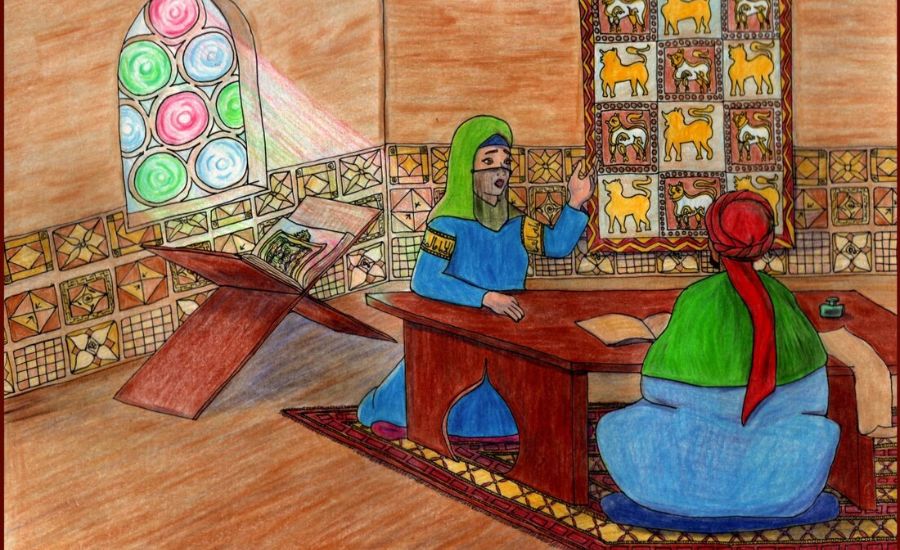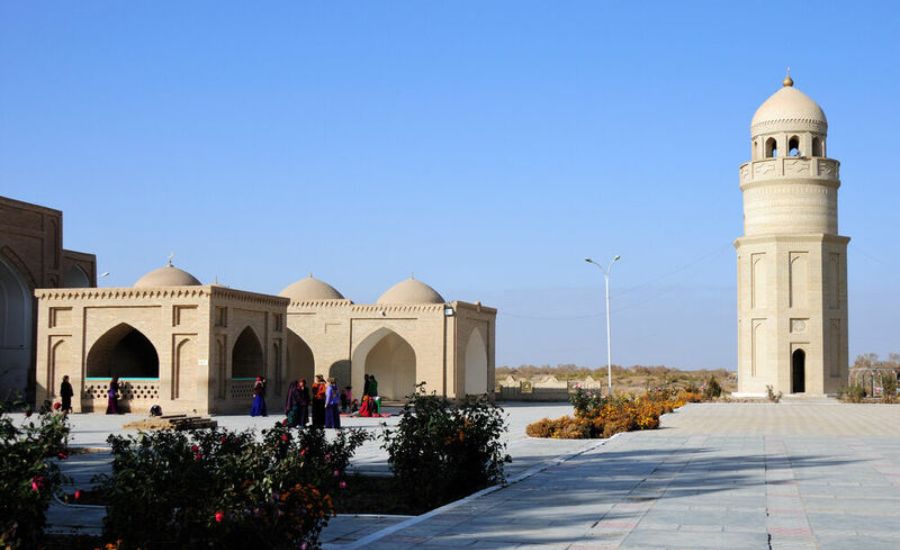Karima B. Aḥmad B. Muḥammad B. ḥātim Al-Marwaziya, Education, Journey & More
Introduction to Karima B. Aḥmad B. Muḥammad B. ḥātim Al-Marwaziya
Karima bint Ahmad b. Muhammad b. Hatim al-Marwaziya is a prominent yet often underappreciated figure in the history of Islamic scholarship. Renowned for her expertise in hadith (prophetic traditions) and Islamic jurisprudence, she made significant contributions that have left a lasting impact on the development of Islamic thought. Despite the passage of centuries, her work continues to inspire contemporary scholars and highlights the crucial role of women in the early intellectual traditions of Islam.
This article explores her life, focusing on her early upbringing, education, and academic achievements, while also shedding light on the broader influence of her contributions to Islamic scholarship. By examining her legacy, we aim to provide a deeper understanding of her invaluable role in shaping Islamic knowledge.
Early Life and Education

Karima al-Marwaziya was born in 969 CE in the village of Kushmaihan, near the city of Merv in present-day Turkmenistan. Her full name, Karīma bint Ahmad b. Muhammad al-Marwaziyya, reflects her familial lineage and connection to the historic city of Merv, an important intellectual hub during the Islamic Golden Age.
Birth and Family Background
Merv, the region where Karima was born, stood at the crossroads of Islamic Persia and Central Asia, renowned for its thriving intellectual and cultural environment. Following the Arab conquest of Persia, Merv evolved into a significant center of Islamic learning, enriched by its Persian heritage and its role as a meeting point for diverse cultures and ideas.
During Karima’s era, Merv attracted scholars, scientists, and philosophers from across the Islamic world and beyond, including visitors from Christian territories and Central Asia. This cosmopolitan and scholarly atmosphere profoundly influenced her formative years, providing fertile ground for her education and intellectual growth.
Education
Karima’s upbringing in such a vibrant academic environment allowed her to access knowledge from some of the most distinguished scholars of her time. She specialized in the field of hadith, excelling in the study and transmission of the sayings and actions of the Prophet Muhammad (peace be upon him). As a woman scholar in a male-dominated field, her rigorous scholarship and piety earned her immense respect among her contemporaries.
Her education was characterized by meticulous study under prominent teachers. Notably, she mastered the Sahih al-Bukhari, one of the most revered collections of hadith, which she transmitted with impeccable accuracy. Her authority in this field gained her recognition as one of the foremost transmitters of Sahih al-Bukhari in her time.
Karima’s dedication to preserving and transmitting Islamic knowledge set a precedent for future generations, demonstrating the pivotal role women could play in scholarly endeavors.
Karima b. Ahmad al-Marwaziya’s life exemplifies the rich intellectual heritage of Islamic history and underscores the importance of inclusivity in academic and religious pursuits. Through her exceptional contributions, she not only advanced Islamic knowledge but also left a legacy that challenges modern assumptions about women’s roles in early Islamic society.
Educational Journey of Karima b. Ahmad al-Marwaziya
Karima b. Ahmad b. Muhammad b. Hatim al-Marwaziya’s educational journey is a testament to her determination and intellectual rigor. Her pursuit of knowledge began in earnest at the age of 24, when she dedicated herself to mastering the Sahih al-Bukhari, one of the most authoritative collections of hadith in Islam. She learned it through the renowned transmission of Al-Kushmaihani (d. 999 CE), which became the foundation of her scholarly legacy.
The Importance of Hadith Studies
During Karima’s time, hadith collections were central to Islamic jurisprudence, theology, and devotional practices. Scholars relied on these traditions to derive laws, craft theological frameworks, and address ethical questions. By specializing in this field, Karima not only entered an intellectually vibrant discipline but also contributed to shaping the broader Islamic scholarly tradition.
A Journey Across Lands of Knowledge
Karima’s commitment to learning led her on a remarkable journey spanning over 3,000 miles, accompanied by her father, Ahmad. Together, they traveled to some of the most celebrated centers of learning in the Islamic world, immersing themselves in the diverse academic traditions of their time.
Their travels included stops in:
- Sarakhs and Isfahan (modern-day Iran): Cities renowned for their vast libraries and vibrant intellectual communities.
- Jerusalem (Al-Quds): A city of immense religious and scholarly importance under Islamic rule.
- Mecca: The spiritual heart of Islam, where she had the opportunity to study in a setting imbued with profound religious significance.
These travels not only broadened Karima’s academic horizons but also allowed her to engage with a variety of scholarly perspectives, enriching her understanding of Islamic sciences.
Mentors and Influences
One of the most pivotal influences in Karima’s scholarly development was her teacher, Al-Kushmaihani, a distinguished hadith scholar. Al-Kushmaihani specialized in transmitting the sayings and actions of the Prophet Muhammad (peace be upon him), a field critical to Islamic scholarship.
Karima studied the Sahih al-Bukhari through a chain of transmission that included Abu Abdullah Al-Firabiri, who had learned directly from Imam Al-Bukhari himself. This prestigious isnad (chain of transmission) elevated Karima’s status as a scholar and ensured her contributions were highly regarded.
Her father, Ahmad, also played an instrumental role. His support and presence during her journey were vital, enabling Karima to overcome barriers that might have limited her access to education. At a time when opportunities for women in scholarship were rare, this familial encouragement was crucial to her success.
Intellectual Foundation and Legacy

The scholarly environment of Merv, combined with her travels and mentorship, laid the groundwork for Karima’s distinguished career as a muhadditha (female hadith scholar). She not only preserved and transmitted critical Islamic knowledge but also became an inspiration for future generations of women in academia.
Karima’s educational journey, marked by her dedication to learning and her contributions to hadith studies, established her as one of the most respected scholars of her era. Her legacy endures as a symbol of intellectual excellence and perseverance in the pursuit of knowledge.
Scholarly Achievements of Karima b. Ahmad al-Marwaziya
Expertise in Hadith Sciences
Karima b. Ahmad b. Muhammad b. Hatim al-Marwaziya distinguished herself as one of the most eminent female scholars of her era. Her mastery in hadith sciences, particularly her expertise in the Sahih al-Bukhari, placed her at the forefront of Islamic scholarship. This unparalleled skill earned her widespread respect and recognition as a leading muhadditha (female hadith scholar).
Her journey into hadith studies began at the age of 24 when she studied Sahih al-Bukhari under the transmission of Al-Kushmaihani (d. 999 CE). Karima’s dedication to accurate transmission and deep understanding of the material set her apart, and her reputation often surpassed that of her male contemporaries.
Karima earned the esteemed title of musnidah of the sacred region, a testament to her proficiency as a hadith authority and evaluator. Her rigorous approach to studying and teaching the isnad (chain of narrators) helped solidify her reputation as an indispensable contributor to Islamic knowledge.
Contributions to Islamic Jurisprudence
While her primary focus was on hadith studies, Karima’s work had significant implications for Islamic jurisprudence. During her time, hadith collections served as essential resources for deriving laws and shaping Islamic theology. Karima’s precise transmission of hadiths was highly regarded and often deemed more reliable than those of her male counterparts.
Her contributions underscored the importance of the isnad system in verifying the authenticity of hadiths. By meticulously examining the reliability of narrators, Karima helped establish foundational principles that influenced the development of Islamic law.
Notable Works and Teaching Legacy
One of Karima’s most notable achievements was her authoritative transmission of the Sahih al-Bukhari, which she learned through a prestigious chain of narrators that included Abu Abdullah Al-Firabiri, a direct student of Imam Al-Bukhari. This distinguished isnad added significant value to her teachings and made her an influential figure in the scholarly world.
As a teacher, Karima was known for her rigorous standards and meticulous teaching methods. She carefully reviewed her students’ work to ensure accuracy in their transmission of hadiths, reinforcing her reputation as an exceptional educator.
- Demanding Standards: Karima required her students to demonstrate a high level of understanding before she permitted them to transmit hadiths in her name.
- Global Influence: Pilgrims visiting Mecca for the Hajj often sought her teachings, spreading her influence across the Islamic world as they returned home.
Her personal copy of the Sahih al-Bukhari was regarded more highly than those of her male peers, further reflecting her unmatched expertise.
Impact on Islamic Scholarship
Recognition During Her Lifetime
Karima’s scholarly contributions were widely acknowledged during her lifetime. Her precise transmissions of hadiths earned her immense respect, and her reputation as a muhadditha transcended geographic boundaries. Pilgrims and scholars alike traveled long distances to learn from her, extending her influence to various Islamic regions.
One noteworthy incident highlighting her authority involved a legal ruling she found unjust. Karima sent a messenger to contest the decision, and her opinion was given greater weight than the presiding judge’s, leading to a reversal of the ruling. This event underscores the profound respect she commanded even in judicial matters.
Influence on Future Generations
Karima’s legacy had a lasting impact on Islamic scholarship, particularly for female scholars. She paved the way for future generations of muhaddithas, proving that women could excel in the transmission and preservation of sacred knowledge.
Although women of her time were not typically permitted to draft Islamic legal codes, Karima’s ability to memorize and transmit lengthy texts with unmatched accuracy earned her a unique position of respect. Her example elevated the status of women in Islamic academia and highlighted their critical role in preserving religious traditions.
Legacy of Excellence
Karima’s high standards in teaching and transmission became a model of scholarly rigor for subsequent generations. Her insistence on verifying the accuracy of her students’ work emphasized the importance of precision in Islamic studies.
Her contributions not only advanced the field of hadith sciences but also demonstrated the essential role women could play in Islamic scholarship. Karima’s enduring legacy continues to inspire scholars and reinforce the importance of intellectual excellence and integrity in the pursuit of knowledge.
Preservation of Karima al-Marwaziya’s Legacy
The enduring legacy of Karima b. Ahmad b. Muhammad b. Hatim al-Marwaziya stands as a testament to her profound impact on Islamic scholarship. Her personal copy of the Sahih al-Bukhari, revered above those of her male contemporaries, symbolized her unparalleled precision and dedication to the study of hadith. The respect she commanded during her lifetime has transcended generations, cementing her place as a pioneering figure in Islamic intellectual history.
Ongoing Recognition and Influence
Karima’s contributions to Islamic knowledge have been preserved through the continuous study and transmission of her teachings. Her meticulous approach to hadith sciences and her insistence on authenticity inspired future generations, particularly Muslim women, to pursue religious education and scholarly endeavors.
Her influence also draws on a broader historical tradition within Islam, where women have played pivotal roles in the transmission of sacred knowledge. From the earliest days of Islam, many hadiths were preserved through the efforts of female companions of the Prophet Muhammad. This connection to Islam’s foundational era has helped reinforce and legitimize the role of women like Karima in the preservation and advancement of Islamic scholarship.
A Tradition of Female Scholarship
Karima al-Marwaziya’s life and work paved the way for a tradition of female scholarship within Islam. By excelling in her field, she demonstrated that women could not only participate in but also significantly contribute to the intellectual and spiritual development of the Muslim community.
Her example helped establish a lasting precedent for the inclusion of women in Islamic education. The muhaddithas who followed in her footsteps continued this tradition, ensuring that the voices of women were integral to the study and preservation of hadith.
Modern Reflections
In contemporary times, the importance of contributions by scholars like Karima al-Marwaziya is increasingly acknowledged. Modern Islamic scholars highlight the critical role women have historically played in maintaining and transmitting Islamic traditions, particularly during times when religious practices and education faced challenges.
Karima’s life serves as a reminder of the need to seek knowledge from authentic and trustworthy sources, emphasizing the value of intellectual rigor and ethical scholarship. Her legacy inspires Muslims today to engage with their faith through study, reflection, and a commitment to preserving their rich intellectual heritage.
An Enduring Example

Karima al-Marwaziya’s work continues to be celebrated and studied, ensuring that her contributions remain a vital part of Islamic intellectual history. Her dedication to accuracy, her role as a teacher, and her advocacy for scholarly excellence demonstrate the timeless relevance of her legacy.
She serves as a beacon for Muslims across generations, underscoring the importance of knowledge, integrity, and the critical role of women in the advancement of Islamic thought.
Final Words
The legacy of Karima b. Ahmad b. Muhammad b. Hatim al-Marwaziya remains a profound influence on Islamic scholarship and continues to inspire both scholars and students of knowledge today. Her exceptional contributions, particularly in the fields of hadith sciences and Islamic jurisprudence, highlight the significant role women have played throughout history in the preservation and transmission of sacred knowledge. Karima’s dedication to precision, her influence on Islamic intellectual traditions, and her teaching legacy have made her an enduring figure whose work and life continue to shape the academic world.
By bridging the gap between early Islamic scholarship and modern times, Karima’s story serves as a reminder of the transformative power of education and the importance of maintaining scholarly integrity. Her legacy not only elevates the role of women in Islamic thought but also reinforces the notion that knowledge knows no gender, continuing to inspire future generations of scholars.
FAQs (Frequently Asked Questions)
1. Who was Karima b. Ahmad b. Muhammad b. Hatim al-Marwaziya?
Karima b. Ahmad b. Muhammad b. Hatim al-Marwaziya was an influential female scholar in Islamic history, known for her expertise in hadith studies. She became a prominent muhadditha (female hadith scholar), revered for her precise transmission of the hadith collections, particularly the Sahih al-Bukhari.
2. What was her contribution to Islamic scholarship?
Karima’s primary contribution was her scholarly work in hadith sciences, particularly her ability to transmit the Sahih al-Bukhari with unmatched accuracy. She also played a significant role in advancing Islamic jurisprudence, particularly through her focus on the isnad (chain of transmission), ensuring the authenticity of hadiths and thereby influencing Islamic law.
3. How did Karima’s legacy impact women in Islamic scholarship?
Karima’s legacy inspired future generations of female scholars, proving that women could be equally involved in the study, transmission, and interpretation of Islamic knowledge. She helped pave the way for women to become recognized as muhaddithas and contributed to the establishment of women in academic circles within Islam.
4. What were her teaching methods?
Karima was known for her rigorous teaching standards, often scrutinizing her students’ work to ensure no mistakes in hadith transmission. Her method focused on meticulous review and the maintenance of high scholarly standards, making her one of the most respected educators of her time.
5. How did her work influence Islamic law?
Through her accurate transmission of hadith, Karima played a crucial role in shaping Islamic jurisprudence. Her work ensured that hadith, which were often used to create Islamic law and guide religious practices, were authentic and reliable. Her scholarly precision impacted how Islamic legal thought evolved over the centuries.
Facts about Karima b. Ahmad b. Muhammad b. Hatim al-Marwaziya
- Born: 969 CE, in Kushmaihan near the city of Merv, Central Asia.
- Known as: A leading female scholar of hadith, and a muhadditha (female hadith researcher).
- Influence: Karima’s Sahih al-Bukhari was regarded as the most reliable version, even more so than the copies of her male contemporaries.
- Notable Achievement: She learned and transmitted hadiths with exactness and integrity, especially Sahih al-Bukhari, from teachers like Abu Abdullah al-Firabiri, who had learned directly from Imam al-Bukhari.
- Legacy: Karima’s work is still influential in Islamic scholarship today, particularly in the fields of hadith studies and Islamic law. Her example continues to inspire Muslim women to engage in religious scholarship and study.
- Recognition: Karima’s scholarly achievements were so respected that travelers would seek her out during the Hajj to learn from her.
For more Information About Biography visit idealrular






